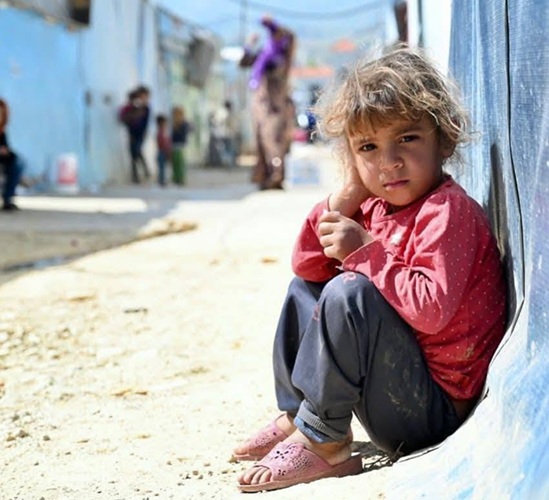The US State Department report is unlikely to serve any purpose other than that of a chronicler catering to academic interest.
Rashaé K
Arbitrary arrests and detentions, extra-judicial killings, violence against religious minorities, curbs on free expression and media, unjustified prosecution of journalists are the factors that US State Department highlighted as a matter of concern in its 2021 Human Rights Report on India. The report has a special mention of the ‘lack of accountability for official misconduct persisted at all levels of government’.
The Country Reports on Human Rights is a document released by Secretary of State Antony Blinken every year on April 12 and submitted to the US Congress every year. It contains a country-wise discussion of the state of internationally recognised individual, civil, political and worker rights, as set forth in the Universal Declaration of Human Rights and other international agreements.
The report on India, while describing how the Indian administration has made a mincemeat of safeguards of human rights, observed that Indian law “prohibits arbitrary arrest and detention but both occurred during the year”, as police used “special security laws to postpone judicial reviews of arrests”. In this context, the report also noted that “pretrial detention was arbitrary and lengthy, sometimes exceeding the duration of the sentence given to those convicted”.
The State Department report on India’s human rights record comes close on the heels of comments made by Mr. Blinken that the US was “monitoring some recent concerning developments in India including a rise in human rights abuses by some government, police and prison officials”. He said this during a joint press conference with External Affairs Minister S. Jaishankar and Defence Minister Rajnath Singh.
Since the report is retrospective, it is neither supposed to, nor did it cover the latest human rights situation in India. For the developments taken place in the country which are prejudicial to humanitarian and democratic values in the intervening period from 2021 to 2022, we have to wait for another year.
The State Department’s initiative to profile India’s human rights record is highly welcome today as never before. At a time when the state is resorting to extra constitutional powers to suppress voices of descent, rightwing Hindutva outfits have literally unleashed a reign of terror on Muslims and Dalits in particular and their ideological adversaries in general.
While the Hindu nationalists are holding the state to ransom and the government is looking the other way, the response of the secular democratic forces is one of muted. Their opposition to the government’s anti people and anti-minorities policies is just ritualistic, without substance.
Cases of arbitrary detention detailed by the report include that of climate activist Disha Ravi in February 2021, human rights activist Hidme Markam, and the frequent house arrests of former Jammu & Kashmir Chief Minister Mehbooba Mufti.
Noting that the Unlawful Activities Prevention Act (UAPA) “allows courts to deny bail in the case of detained citizens”, the report highlighted the denial of bail to most of the 15 activists incarcerated in connection with the Elgar Parishad Bhima Koregaon protests, and detailed the cases of 81-year-old Varavara Rao and Jesuit priest Stan Swamy who died after “a special NIA [National Investigation Agency] court had rejected multiple bail pleas submitted on medical grounds”.
The report also flagged violation of privacy of journalists by surveillance through the Pegasus malware, “including the use of technology to arbitrarily or unlawfully surveil or interfere with the privacy of individuals”. It cited media reports in this connection.
Conceding that the government generally respected the right to freedom of expression, the report cited “instances in which the government or actors considered close to the government allegedly pressured or harassed media outlets critical of the government, including through online trolling”.
Taking arrest of stand-up comedian Munawar Faruqui for “offending religious sentiments with jokes he allegedly planned to perform” as a case in point, the report detailed the government’s order of February 1, 2021 directing Twitter to block accounts of journalists covering protests against the three (later repealed) farm laws.
Other cases cited by the report are the arrest of social activist Erendro Leichombam “for a Facebook post critical of a BJP (Bharatiya Janata Party] leader who advocated cow dung and cow urine as cures for COVID-19”, and Tamil Nadu Police’s arrest of Father George Ponnaiah, a Catholic priest, for alleged hate speech against the Prime Minister and Home Minister.
The report, under a sub-section on academic freedom and cultural events, mentioned how a few Kashmiri academics aspiring to travel abroad to attend conferences were stopped from leaving the country. It also highlighted warning issued by Madhya Pradesh Police to Dr. Harisingh Gour University over a proposed webinar titled ‘Culture and Linguistic Hurdles in the Achievement of Scientific Temper’. The warning was issued after the Akhil Bharatiya Vidyarthi Parishad (ABVP) had objected to the “antinational mentality” of the participants.
In the section on ‘Freedom of Association’, the report highlighted the cases of Amnesty International India, whose assets were frozen by the Enforcement Directorate, and the suspension of the Foreign Contribution (Regulation) Act (FCRA) license of Commonwealth Human Rights Initiative (CHRI) for alleged violations.
True to the report, the matters have come to a head with the democratic institutions becoming compliant to the ruling dispensation, and by extension to the radical affiliates of the ruling BJP, the citizens have nowhere to look for redressal. Hence, the confidence of the people in the rule of law has shaken as never before.
Under the circumstances, the US State Department report on human rights in India comes as breeze of fresh air. But the major drawback of the exercise of the State Department is that it came too late in the day. By the time the report came in, it’s too late to take preemptive measures against possible human rights abuses in a country. Against this backdrop, the report serves no purpose other than that of a chronicler catering to academic interest.
Besides, given the strategic bilateral relations with India the US has invested in, the sole superpower in the world is unlikely to take up with right earnest the issues that could cause disquiet between the governments of the two countries. How can it assume a proactive role in favour of the besieged Indian population is the question.
Nevertheless the report’s significance as a conscience keeper of the global governments can’t be ruled out provided that the government in question has a conscience.






0 Comments